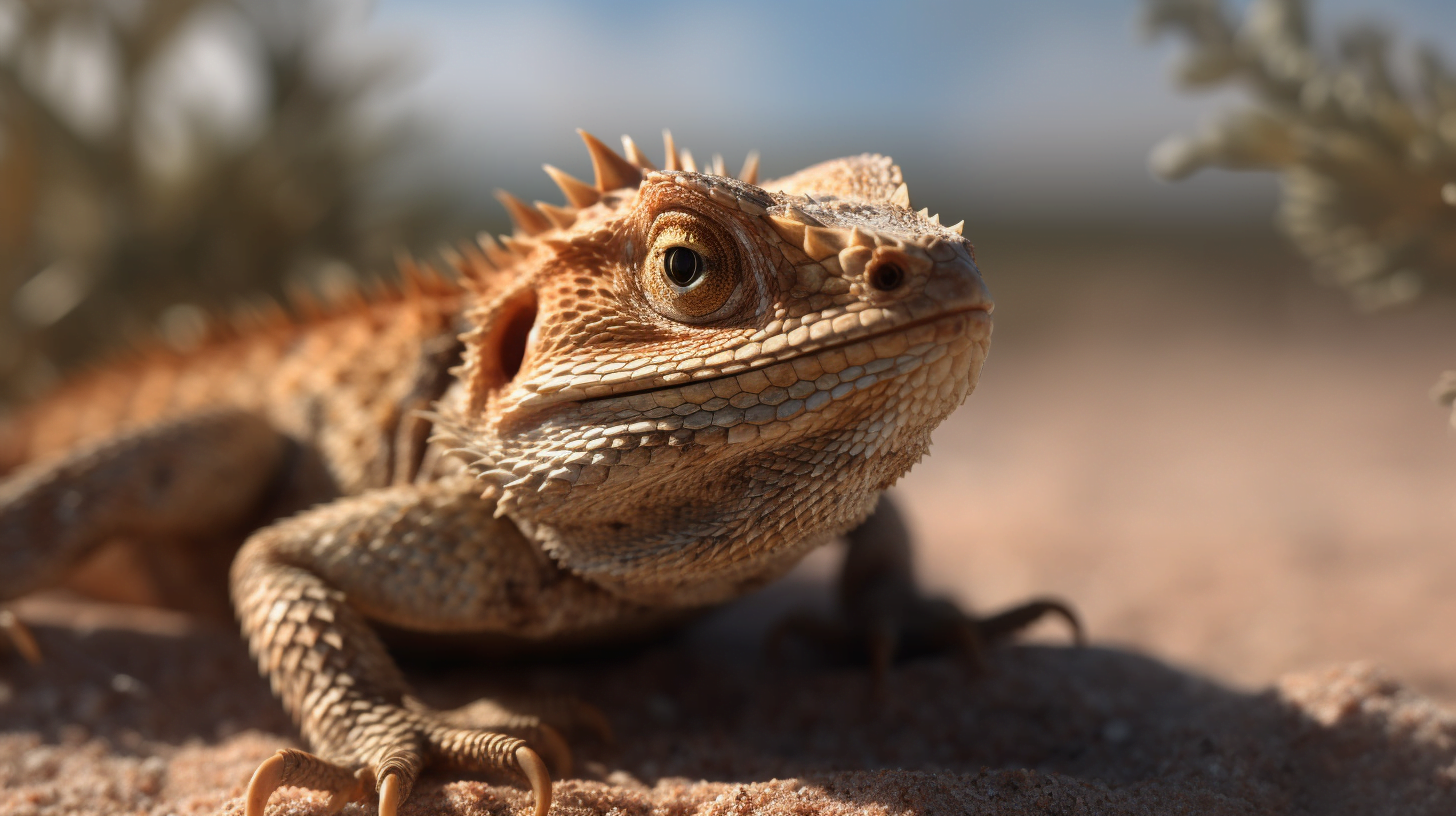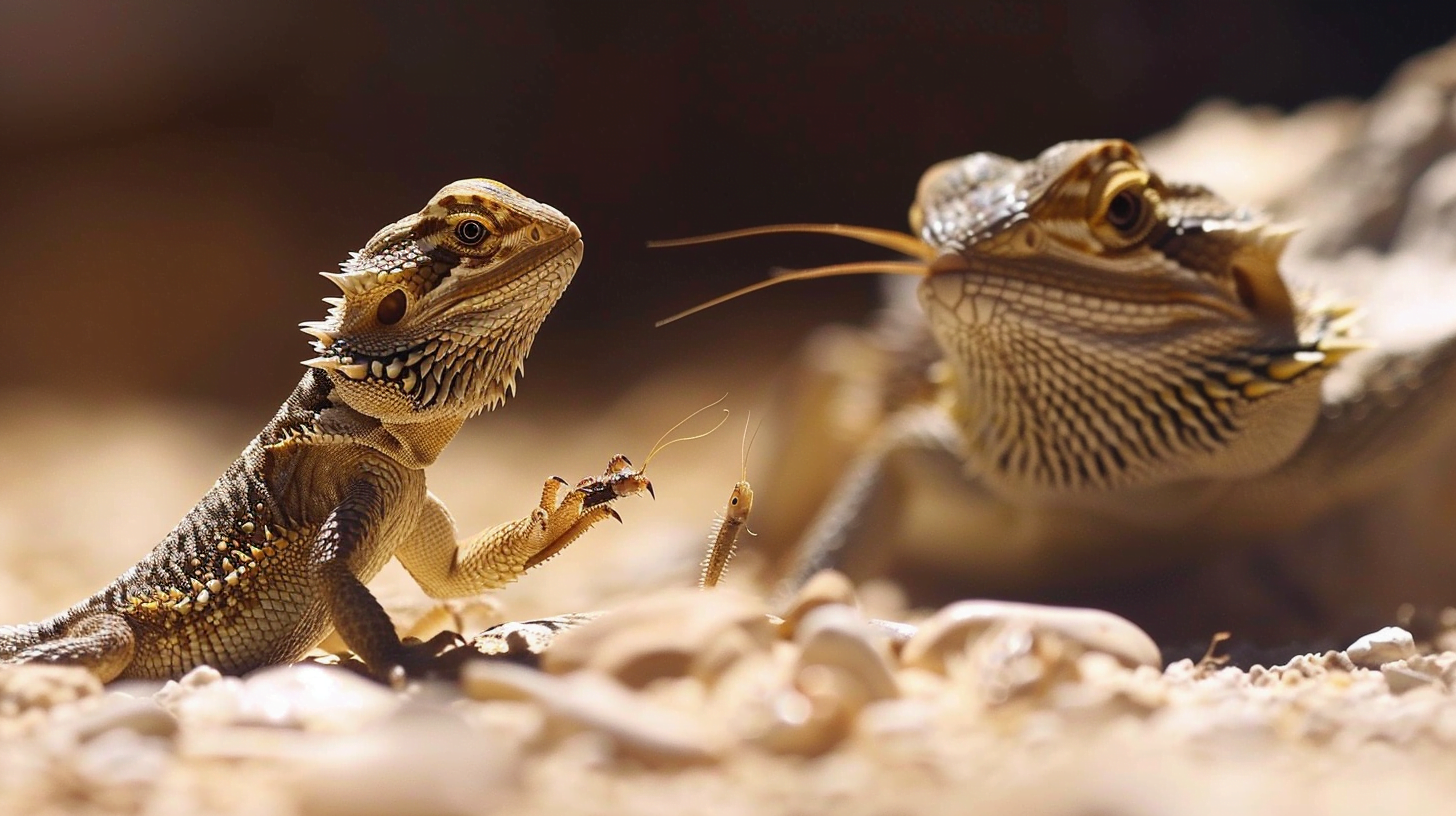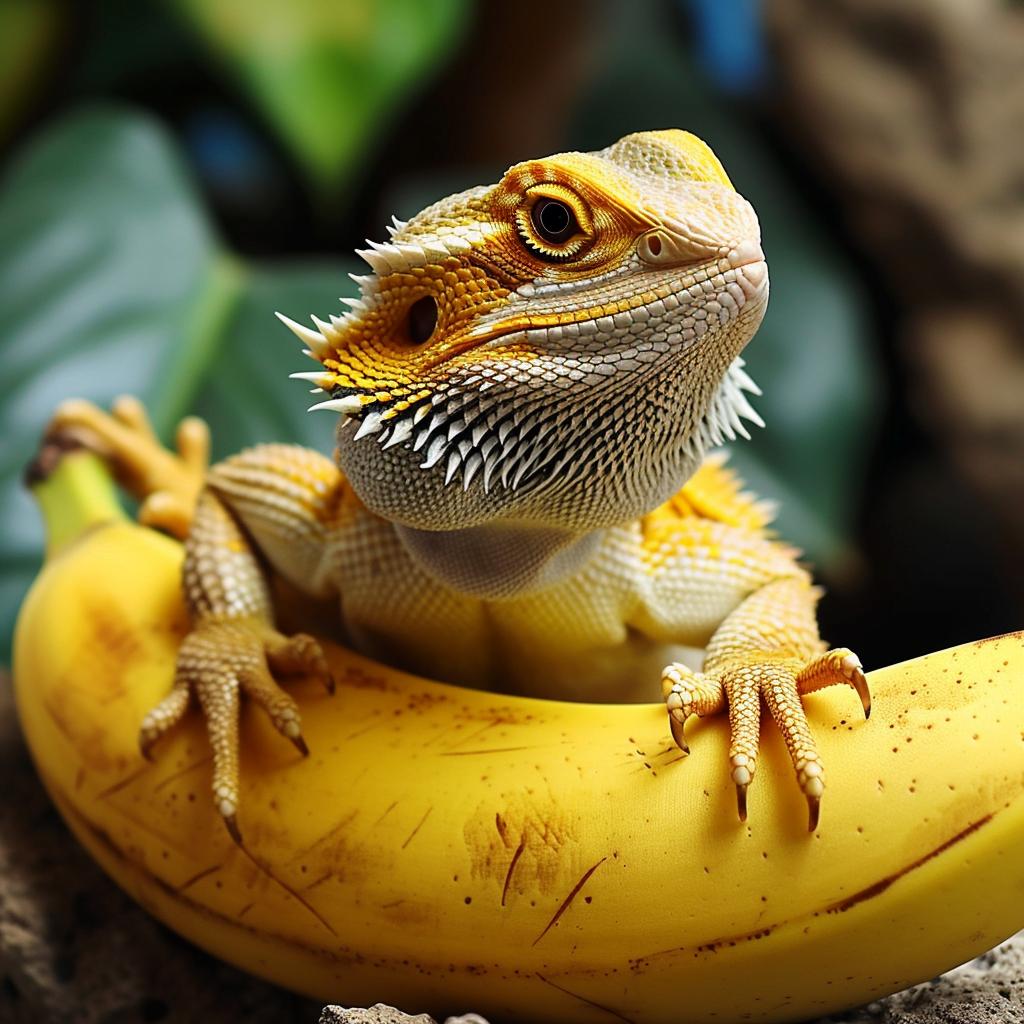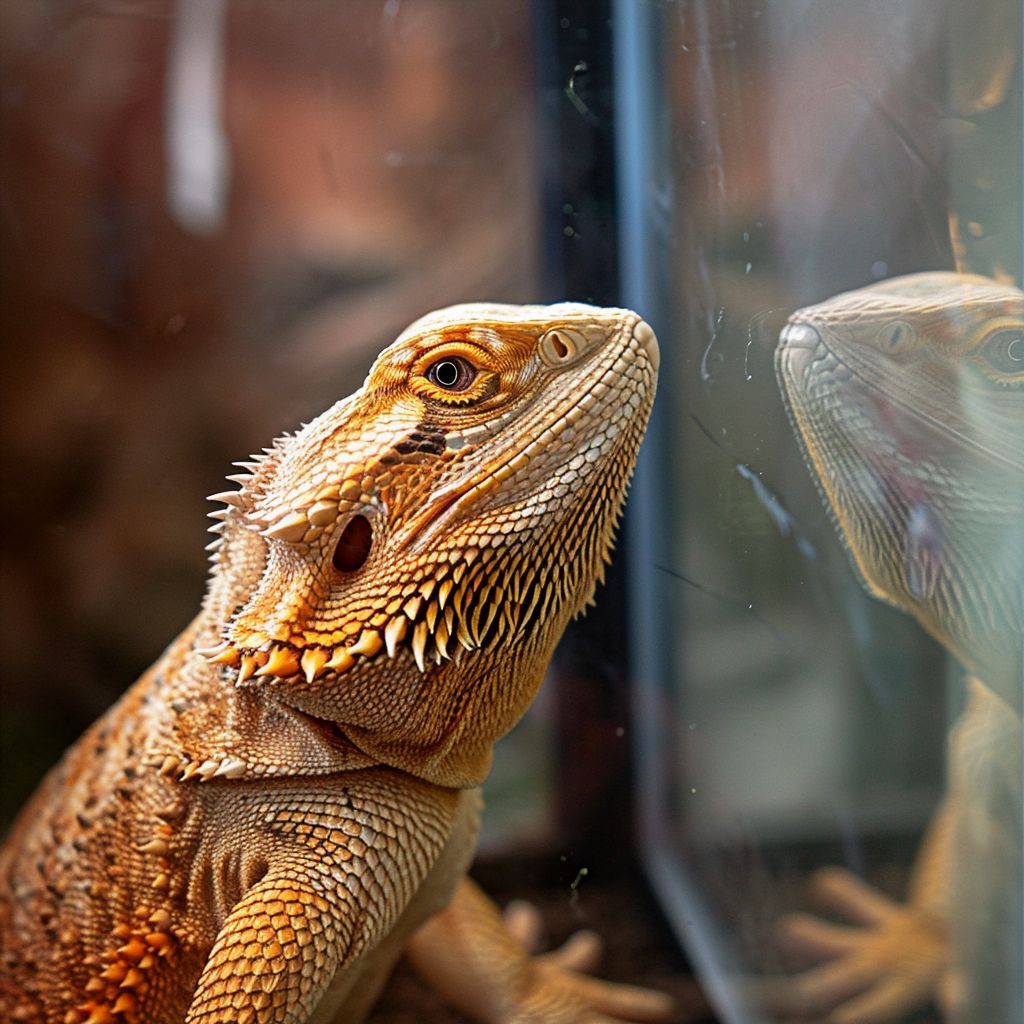Table of Contents
Bearded dragons are omnivorous lizards that require a balanced diet comprised of vegetables, fruits, proteins, and calcium for optimal health. While vegetables should make up the bulk of their diet, adding a small amount of fruit can provide beneficial nutrients and variety. However, not all fruits are safe and too much fruit can cause issues due to the high sugar content. This article will dive into the best fruits to incorporate into your bearded dragon’s diet and how much to feed daily. So.. What Fruit Can Bearded Dragons Eat Daily? Let´s find out!
Best Fruits for Bearded Dragons
Fruits can be a great supplement for bearded dragons. Here are some of the top fruits to feed a bearded dragon:
Bananas
Bananas are a great option for bearded dragons. They are high in potassium and relatively low in sugar compared to other fruits. Select ripe bananas and mash them into a paste or sauce consistency to make it easier for your bearded dragon to eat and digest. Banana paste or sauce can be served on its own or mixed with greens.
Apples
Apples are another good fruit choice, providing vitamin C, potassium, and fiber. Be sure to wash apples thoroughly, remove any seeds or core, and chop the flesh into small pieces. The skin can also be removed if preferred. Chopped apples are safe to feed bearded dragons either on their own or mixed into salads.
Berries
Small amounts of berries like blueberries, blackberries, and raspberries can be fed to bearded dragons. Berries contain beneficial antioxidants in addition to vitamins and minerals. It is best to limit berries to only 1-2 times per week since they are higher in natural sugar. Mash them up or finely chop berries before feeding.
Melons
Melons such as cantaloupe, honeydew and watermelon have high water content, which helps with hydration. Chop melon flesh into bite-sized pieces after removing rind and seeds. The soft texture and mild sweetness makes melon an excellent fruit add-in a few times a week.
Mango
Mango is higher in sugar so should be fed sparingly, but provides ample vitamins A, B6 and C. Peel and seed the mango before cutting it into strips or cubes. Fresh, ripe mango makes a tasty occasional treat.
Fruits to Avoid for Bearded Dragons
While the fruits listed above are suitable for bearded dragons, there are also many fruits that should be avoided or limited for health reasons:
Citrus Fruits
Citrus fruits like oranges, grapefruits, lemons and limes are very acidic for a bearded dragon’s sensitive digestive system. They can cause upset stomach or diarrhea. It’s best to completely avoid feeding citrus fruits.
Grapes or Raisins
Grapes or raisins have caused kidney failure in some reptiles so these fruits should be avoided. Even small amounts could be toxic to their kidneys.
Avocado
Avocados contain persin, which is a fungus toxin that is poisonous to reptiles. It is safest to never feed bearded dragons avocado.
Dried Fruits
Dried fruits like prunes, dates, cranberries and others are very high in sugar content. It’s best to avoid dried fruit or only feed tiny amounts very rarely. The extra sugar can cause weight gain and other issues for bearded dragons.
Fruit Juice
Fruit juices made for humans are much too sugary and acidic for bearded dragons. Do not give them any type of juice or liquid made from fruit.
By steering clear of these fruits, you can prevent possible health problems and keep your bearded dragon’s fruit diet safe.
How Much Fruit to Feed Bearded Dragons
When adding fruit to a bearded dragon’s diet, moderation is key. Follow these guidelines:
- Fruit should make up no more than 10% of the total diet
- Feed fruit only 1-2 times per week at most
- Chop pieces small for easier digestion
- Avoid daily feedings of fruit due to sugar content
Feeding fruit too often can lead to weight gain, gastrointestinal issues and other health problems for bearded dragons. Veggies, leafy greens and properly supplemented insects should make up the bulk of their food. Use fruit as occasional treats in modest amounts.
How to Prepare and Serve Fruit
To safely feed fruit to bearded dragons, follow these steps:
- Thoroughly wash fruits before serving to remove any pesticides, dirt or contaminants
- Remove any seeds, pits, peels, skin, stems or other inedible parts
- Chop the fruit into bite-sized pieces for easy eating
- Mash softer fruits like bananas, watermelon and berries into a paste or puree for better digestibility
- Fruit can be served alone in a bowl or mixed with leafy greens, vegetables and finely chopped salad mixes
- Combine fruits together for more variety
- Allow fruit to come to room temperature before serving
Proper preparation methods for fruits help ensure bearded dragons can digest the fruits well and gain the most nutritional value. Taking the time to wash, peel, seed and chop or puree fruits prevents choking hazards.
Ideal Fruit Salad Recipe for Bearded Dragons
Here is an example of a fruit salad recipe you can make for your bearded dragon a couple times per week:
Ingredients:
- 1⁄4 cup chopped cantaloupe
- 1⁄4 cup watermelon cubes
- 2 tbsp blueberries
- 2 tbsp banana puree
- 1 strawberry, sliced
- 1 tsp shredded carrot
- 1⁄4 cup chopped collard greens
Instructions:
- Wash, peel and chop all fruit ingredients into small pieces.
- Mash banana into a puree texture.
- Mix all ingredients together in a bowl.
- Portion out about 2 tablespoons for an adult bearded dragon.
- Store leftover fruit salad in the refrigerator for up to 3 days.
This balanced fruit blend gives your bearded dragon some yummy fruit flavored variety while limiting sugar content. The added greens help provide fiber and nutrients. Rotate different fruits each time to give your pet a flavorful, appetizing treat!
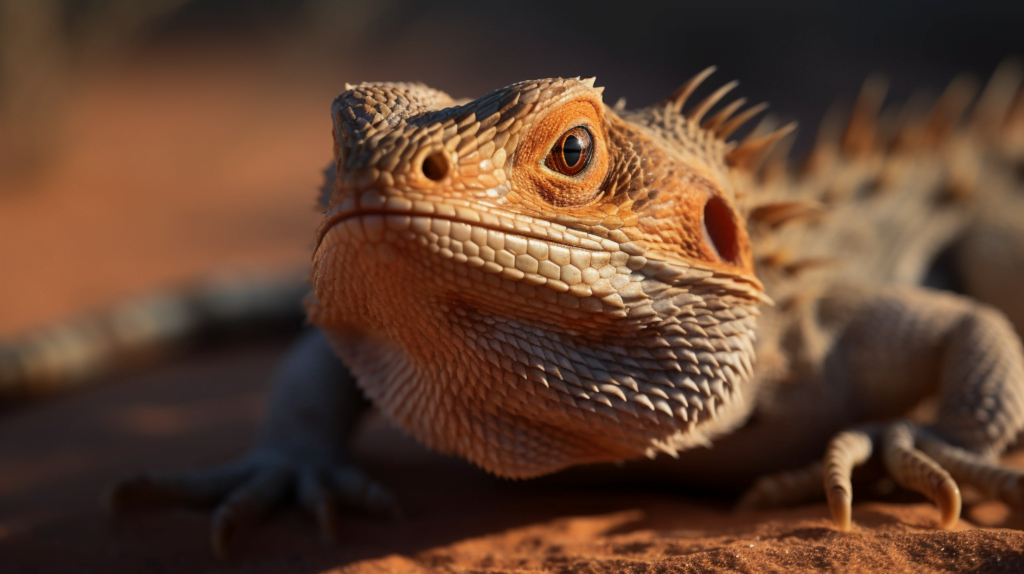
Health Benefits of Fruits for Bearded Dragons
In moderation, fruit can be nutritious for bearded dragons. Here are some of the valuable vitamins, minerals and benefits that fruits can provide:
- Potassium – Important for fluid balance, nerve function, and muscle contractions
- Fiber – Aids digestion and gut health
- Vitamin C – Supports a healthy immune system and healing
- Antioxidants – Berries contain compounds that reduce cell damage
- Vitamin A – Critical for eye health and vision
- Hydration – Fruits like melon have high water content
- Variety – Small amounts of different fruits adds diversity to diet
While vegetables should still be the mainstay of a bearded dragon’s diet, the nutritional perks of fruits make them a healthy supplement when fed properly. The fiber can also help trucks move through the digestive tract. Getting a range of vitamins and minerals from fruits helps prevent deficiencies.
Potential Risks of Too Much Fruit
Feeding too much fruit, or fruits that are unsafe for bearded dragons, can put their health at risk. Here are some problems that can result from improper fruit feeding:
- Obesity – Excess sugar can lead to rapid weight gain
- Diarrhea – Fructose and sorbitol act as laxatives
- Dehydration – High sugar foods increase fluid losses
- Gout – Fruits high in purines may raise uric acid levels, causing painful joints
- Metabolic bone disease – Too much fruit can interfere with proper calcium absorption
- Toxicity – Persin in avocados, oxalates in rhubarb, etc. can poison dragons
To keep your bearded dragon healthy, it’s vital to stick to the recommended fruits and serving sizes, and limit high sugar fruits. Aim for vegetables to be 80-90% of diet, with proteins making up most of the remainder.
Signs Your Bearded Dragon May Be Eating Too Much Fruit
Monitor your bearded dragon after feeding fruits to watch for the following signs of possible excess fruit intake:
- Loose, watery, or unusually smelly stool/diarrhea
- Lethargy, weakness, or loss of appetite
- Increased thirst and urination
- Weight gain, especially in the abdomen
- Refusal to eat vegetables or greens
- Swollen or reddened joints, limping or straining to move
If you notice any of these symptoms, cut back on fruits and increase hydration. Contact an exotic vet if symptoms are severe or persist more than a day or two. Addressing diet changes quickly can prevent major health issues.
FAQs About Feeding Bearded Dragons Fruit
Can I give my bearded dragon fruit every day?
No, too much daily fruit is unhealthy. Limit fruit to 1-2 times per week at most.
What is the best fruit to feed bearded dragons?
Some of the best fruits are bananas, apples, berries, melons, and mango in moderation. Avoid citrus, avocados, grapes/raisins, and dried fruits.
Can baby bearded dragons eat fruit?
Yes, but only in tiny portions since too much sugar is unhealthy for juveniles. Stick to a tiny bite of banana or melon once a week or less.
Are freeze-dried fruits ok for bearded dragons?
No, freeze dried fruits are too concentrated and sugary. Feed only small amounts of fresh fruits instead.
What fruits should you never feed bearded dragons?
Avoid citrus, avocados, grapes, dried fruit, and rhubarb. These are toxic or too high in sugar content.
Can I mix fruits into a bearded dragon smoothie?
Occasionally mixing a small amount of fruit into a veggie smoothie is fine but avoid making fruit-based smoothies.
How do I know if my bearded dragon is addicted to fruit?
Signs include refusal of greens, demanding fruit, weight gain, loose stool, lethargy, or aggression when denied fruit.
Conclusion
Fruits can add beneficial nutritional variety to a bearded dragon’s diet when chosen carefully and fed in moderation. Stick to fruits like bananas, berries, apples, melon and mango a couple times a week. Avoid high sugar dried fruit, citrus, grapes, and avocados. Portion fruit to less than 10% of total food intake. Monitor your pet’s health closely when providing fruit treats. With proper planning and limitations, fruits can be a safe supplement that gives bearded dragons additional vitamins, minerals, hydration and flavors. Just be cautious not to overdo it with fruits!

